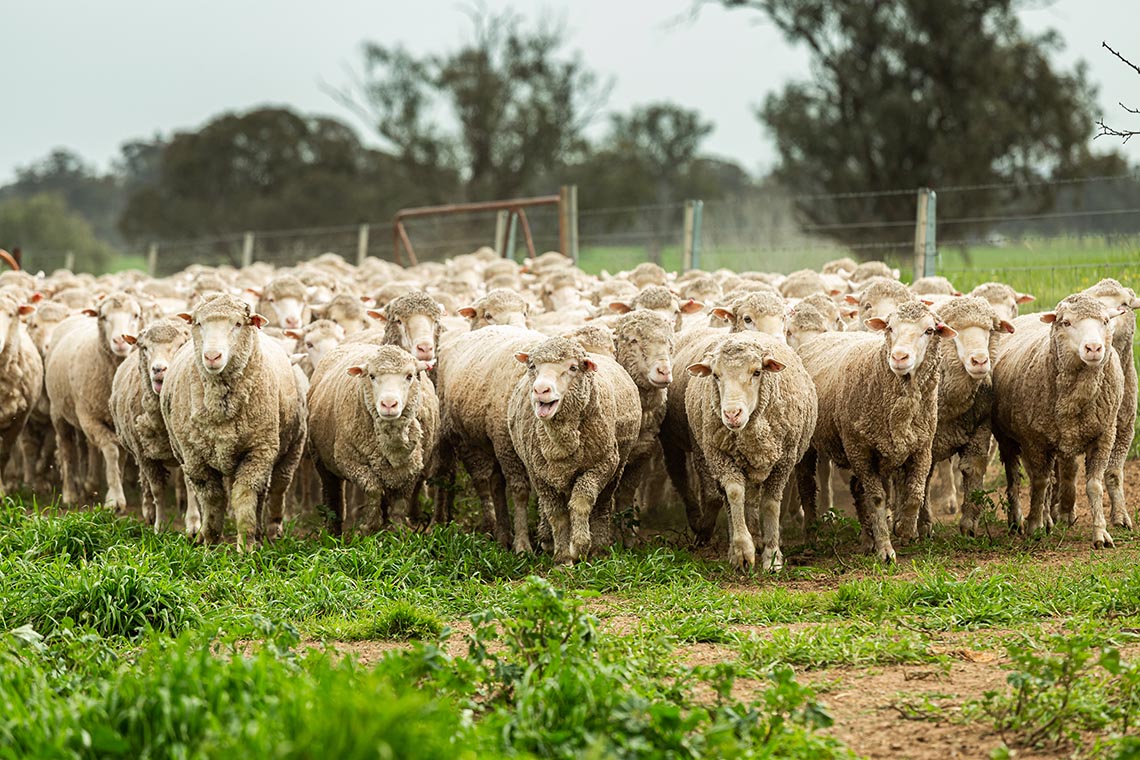The balls of it all, are my rams working?
11 Mar 2022
PRODUCTION ADVICE & NRM NEWS - MARCH 2022 - ANIMAL HEALTH
By Katelyn Braine
District Veterinarian
P: 03 5881 9916 | M: 0499 339 018 | E: katelyn.braine@lls.nsw.gov.au

Is your bottom-line suffering from a reduced lambing percentage?
Ovine Brucellosis (OB) is an infectious bacterial disease in sheep that can cause infertility or reduced fertility in your flock. Infection can go unnoticed until a low scanning rate, lambing percentage or a longer lambing period sparks investigation. We have recently performed several infertility investigations following low scanning rates reported by producers and found OB to be the cause.
OB affected rams appear healthy, but the infection causes inflammation of reproductive organs, reducing fertility, potentially to the point of complete sterility. The disease can also very occasionally cause abortion in ewes.
One way of checking for infection is to manually palpate the scrotum (feel the balls) to check for lumps. If you find anything, call a vet to confirm with a blood test.
Ram-to-ram spread is the most common route of infection. This means one of the best ways of preventing infection on farms is to restrict the entry of infected rams. This means good boundary fences to prevent stray rams and purchasing rams that are accredited as Brucellosis free. Don’t buy rams from a sale yard, as they could be infected.
Once a ram flock is infected, infection is maintained in the group as new rams are continuously infected by infected rams. Ewes can be temporarily infected and are occasionally implicated in spreading the disease, either from ram to ram or onto a new property.
Meat breeds such as Poll Dorset and Dorper often have higher rates of infection within the flock due to increased sexual activity compared to Merinos.
Unfortunately, there is no treatment for OB and control is aimed at eliminating the infection from your flock through a test and cull program.
There are a few simple practices that you can implement to prevent brucellosis from infecting your flock, including:
- Purchasing rams from studs that are accredited as OB free
- Palpating ram testicles to check for lumps prior to purchasing and before joining
- Make sure your biosecurity plan is up to date and quarantine any new introductions for at least a month
- Check your boundary fences
- Seek veterinary advice if you notice lower lambing percentages, longer lambing periods, or abnormal lumps in the testicles
If you would like further information on Ovine Brucellosis or would like to speak to a veterinarian about infertility within your flock, contact your District Vet by calling 1300 795 299 or drop into a nearby Local Land Services office.